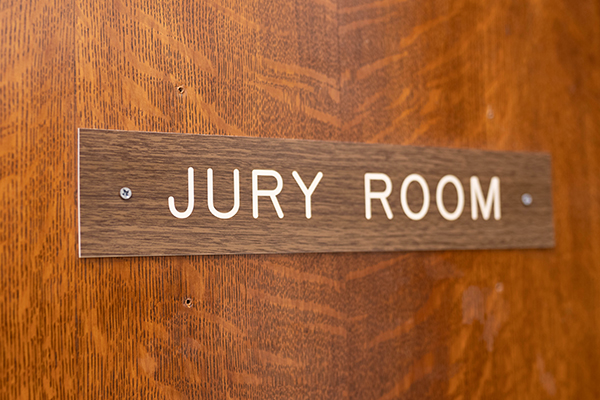Ethics/Professional Responsibility,
Civil Litigation
Aug. 29, 2025
Respect makes the strongest case
A recent trial highlighted how civility in the courtroom can shape jury deliberations, build trust and strengthen the integrity of the justice system.




Joseph M. Barrett
The Barrett Lawyers, APCPhone: (959) 227-7388
Email: jmb@thebarrettlawyers.com
Southwestern Univ SOL; Los Angeles CA

This summer, I have the honor of speaking at CAALA Vegas 2025 Convention on the Civility panel, with my talk centered around civility in trial practice. It is a topic close to my heart -- not because I've always been perfectly civil, but because I've lived long enough as a trial lawyer to learn what real strength looks like. I've seen firsthand how civility, far from being a weakness, is a weapon -- one that serves our clients, strengthens our cases and upholds the dignity of the profession we love.
That message hit home for me in a very real way during a recent jury trial this June and July in Rancho Cucamonga. It was a hard-fought case. There were sharp legal disagreements, expert battles, tough cross-examinations -- all the things you expect in a contested personal injury trial. But after the verdict came in, we spoke with several jurors. And what they told us stopped me in my tracks. They said:
"We noticed how respectful you and the defense lawyer were to each other. You even seemed to like each other. That helped us, as jurors, be civil with each other. It allowed us to hear each other out and work with strong opposing opinions to find a consensus we could all work toward."
Think about that for a moment. The tone we lawyers set didn't just impact how the case was tried -- it shaped how the jury deliberated. Our professionalism gave them permission to be thoughtful, open-minded and respectful of differing views. It created the atmosphere for justice to actually work. If you're a trial lawyer reading this, I ask you: Are you thinking about what tone you are setting? Not just for the court. Not just for your opposing counsel. But for that box of 12 strangers who are watching you, every minute, wondering what kind of person you are -- and whether they can trust what you're telling them.
We talk a lot about persuasion. We study jury psychology. We attend seminars on openings, closings, cross-examination techniques. But what's often overlooked is that how we behave matters just as much -- sometimes more -- than what we say. The jurors don't just hear the words. They watch the conduct. And when they see a lawyer who is calm, composed and civil -- even in the heat of trial -- they associate that with credibility. With strength. With truth.
Civility is not weakness. It is restraint. It is emotional intelligence. It is the sign of a professional who is in command of the facts, the law and themselves. In ABOTA we preach this.
I've seen the opposite, too. Lawyers so bent on winning every exchange that they lose the room. Lawyers who treat every disagreement as personal, who raise their voices and slam their binders and forget that they're being watched. What they don't realize is that, while they're performing for the jury, the jury is performing a silent verdict -- on them. What we forget -- especially in the adrenaline of trial -- is that jurors crave professionalism. They crave clarity. They are being asked to perform a solemn civic duty. They want to believe in the process. And we, as lawyers, either give them that faith -- or we take it away.
Now let me be clear: I'm not saying we don't fight hard. We do. I fight as hard as anyone. I've battled corporations, insurance carriers, defense experts who make a living minimizing pain. But I've learned that I can still be civil. I can still say "good morning" to opposing counsel. I can still stipulate to things that aren't in dispute. I can still treat everyone in the courtroom -- from the clerk to the bailiff to the court reporter -- with respect.
Because when we take the high road, we bring everyone up with us.
At CAALA Vegas, I remind my fellow lawyers that when we behave with dignity, we don't just elevate ourselves -- we elevate the system. The public is watching. The jurors are watching. And the next generation of lawyers is watching.
Let your example be the reason a jury finds clarity in the fog of disagreement. Let your restraint be the signal that your client has truth on their side. And if you do it right, maybe a juror will say to the next young lawyer what was said to me:
"Because of the way you acted, we knew how to treat each other."
That, my friends, is a verdict worth striving for.
Submit your own column for publication to Diana Bosetti
For reprint rights or to order a copy of your photo:
Email
Jeremy_Ellis@dailyjournal.com
for prices.
Direct dial: 213-229-5424
Send a letter to the editor:
Email: letters@dailyjournal.com




